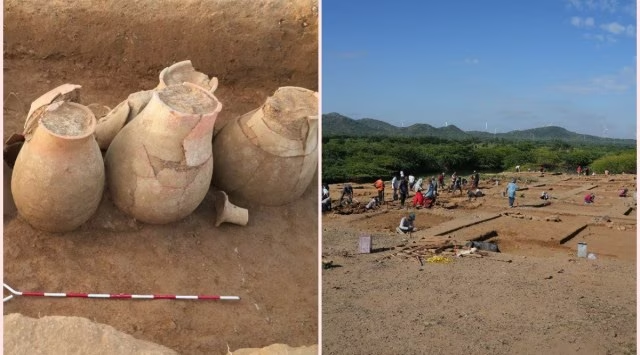
Kerala professor wins China award for discovering Harappan remains in Kutch
text_fieldsPhoto courtesy of The Indian Express, Prof Rajesh SV and Abhayan GS
New Delhi: Prof Rajesh S V, an Assistant Professor at the University of Kerala, received the coveted Field Discovery Award from China for his discovery of a Harappan cemetery in Gujarat’s Kutch district.
The Chinese Academy of Social Sciences of Shanghai University conferred on him the award at the fifth Shanghai Archaeology Forum (SAF) organised in China’s Shanghai between December 15 and December 18, according to The Indian Express.
The award, given by the Institute of Archaeology at the Shanghai University academy, comes with a medal and a certificate.
‘The Early Harappan Cemetery at Juna Khatiya, Gujarat, India (c.3200—2600 BCE)” selected for the 2023 SAF Field Discovery Award. We warmly congratulate you for the remarkable contributions you have made to the field of archaeology,’ reads the certificate.
Prof Rajesh’s discovery was the only one from India in the discovery segment and it competed with 131 others from across the globe.
The multidisciplinary team led by the professor discovered the Juna Khatiya archaeological site in 2016.
They had the help of the then Juna Khatiya village sarpanch Narayan Jajani.
The team, which included international domain experts, excavated 197 burials at the cemetery spread over 16 hectares.
They discovered that the cemetery from 3200 BC to 2600 BC is part of the early stage of the Harappan civilisation in the Indus valley.
The largest Harappan burial ground discovered in India sits in the Great Rann of Kutch in Lakhpat taluka of Gujarat’s Kutch district on the Indo-Pakistan border, according to The Indian Express.
The team has plans to work on a new archaeological site called Padada Bhit near the cemetery in February next year.























